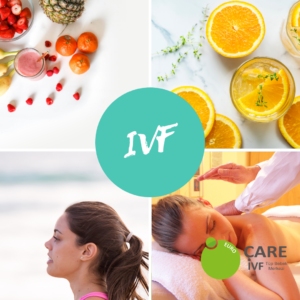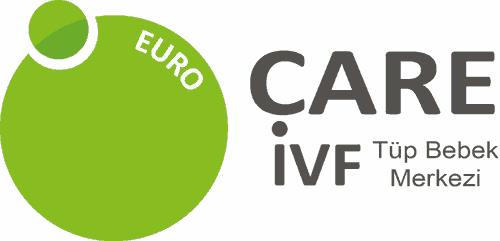 Every month your ovaries produce one single egg. The process is known as ovulation. During ovulation, the produced egg will move from the ovaries to the Fallopian tubes. At this point, the egg is fully grown and ready to be fertilized with the sperm.
Every month your ovaries produce one single egg. The process is known as ovulation. During ovulation, the produced egg will move from the ovaries to the Fallopian tubes. At this point, the egg is fully grown and ready to be fertilized with the sperm.
Ovulation is the first requirement for you to get pregnant. The second important factor for achieving and retaining a healthy pregnancy is egg quality.
Egg quality refers to the state of the egg as being genetically normal (euploid) or abnormal (aneuploid).
Good egg quality increases the chance of giving birth to a healthy child. Whereas poor egg quality causes miscarriage, birth defects and failed IVF cycles. In IVF, poor egg quality results in lower success rates and implantation failures.
If you’re about to start your next IVF cycle, then egg quality should be a number one priority. Your IVF Cyprus success is directly linked to egg quantity and quality. Follow these three effective ways to improve your egg quality for IVF.
Egg quality check
How to check my egg quality? This may be the first question that’ll put your egg quality back on track. To your surprise, there is no egg quality test. Why? Because there is no single way to assess it.
One way to determine the egg quality is by measuring the ovarian reserve. Ovarian reserve is the number of follicles in the woman’s ovaries that can produce a healthy egg.
Your ovarian reserve is measured with a few basic fertility tests before IVF. These tests check your reproductive potential and measure your fertility level. And based on the test results, you’ll get an adequate treatment plan.
So what fertility tests do doctors do?
FSH test
FSH test is a fertility test that measures the follicle-stimulating hormone in your blood. FSH test helps fertility doctor identify other fertility issues in women.
What is FSH? Why is FSH used in IVF?
FSH is a fertility hormone that stimulates the growth of the follicles in your ovaries. The process is known as folliculogenesis. The follicles are fluid-filled sacs that contain immature eggs.
The hormone regulates your menstrual cycle. It also controls the release of an egg from the ovaries at ovulation each month. FSH is important for estradiol production. Estradiol is a hormone that also controls ovulation and helps the uterus get ready for implantation.
FSH makes sure all reproductive processes in the female body run well each month.
In IVF, FSH predicts the response of the ovaries to fertility drugs. Good egg quality correlates with higher success rates in IVF.
What should FSH levels be?
There are no universal cut-off values for FSH. FSH levels should be interpreted based on age.
The normal values of FSH for each age group are as follows:
<33 Years old – <7.0 mlU/mL
33-37 Years old – <7.9 mIU/mL
38-40 Years old – <8.4 mIU/mL
41 Years or older – <8.5 mIU/mL
One study found that women with elevated basal FSH who responded well to fertility drugs had a chance of pregnancy similar to that of women of their age.
But the FSH test has its own limitations.
One reason why FSH testing is not so useful is the need to be conducted at a particular time. FSH is usually tested on day 3 of the menstrual cycle.
Another reason is that FSH levels vary during the menstrual cycle and also from cycle to cycle. Sometimes women may get a normal test value one month and abnormal test results the next.
Yet, FSH tests provide valuable data about the fertility of patients who seek IVF. To optimize the test results, clinics ask patients to do AMH and AFC tests.
AMH test
AMH test is a simple blood test that measures the ovarian reserve (egg supply). Ovarian reserve is the potential of the ovaries to respond to fertility drugs.
What is AMH?
AMH (Anti-Mullerian Hormone) regulates folliculogenesis and egg production. AMH is a measurable indicator of the ovarian reserve and a reliable predictor of IVF success. It can also serve as a molecular biomarker for the size of the follicles.
The level of AMH declines as you get older. By the time you reach menopause, AMH levels are imperceptible.
What is the normal AMH level for age?
The hormone doesn’t vary during the menstrual cycle. You can take the test any time you want to. An AMH score between 6 and 24 pmol/l shows a normal reserve. A reading between 24 and 70 is considered high, suggesting PCSO. Above 70, you’re at a high risk of hyperstimulation in IVF. A score below 3 is too low.
It’s important to know that there are no universal cut-off values for AMH. What are normal test results for one age group may be abnormal for another. Interpretation of AMH levels should rely on female age.
The following are AMH values by age:
< 33 Years = 2.1 ng/mL
33-37 Years = 1.7 ng/mL
38-40 Years = 1.1 ng/mL
41+ Years = 0.5 ng/mL
Neither FSH nor AMH can determine whether a woman can or cannot conceive with IVF. Sometimes, AMH can be undetectable, and women can still become pregnant.
AMH and FSH are important for fertility, but placing too much emphasis can be misleading.
The limitations of AMH and FSH tests are overcome by other fertility tests known as AFC scan.
AFC scan
Egg Quality Diet
How long does it take to improve egg quality?
Every egg quality program takes about 90 days to make an impact. During these 90 days, the follicles are influenced by environmental and lifestyle factors. The 90-day rule is all about evaluating negative habits and make a positive change.
Your diet has a crucial effect on both your fertility and general health. Your body uses the nutrients from your food to repair cells, produce hormones, and generate an egg.
Can diet affect egg quality?
Researchers found that a Mediterranean diet 6 months before IVF increases the success rates to 65-68%. The reason why a Mediterranean diet is the perfect IVF diet is its diversity and balance.
What foods improve egg quality?
Optimizing your diet is an effective way to improve your egg quality naturally. Eat whole grains (brown rice, barley, millet, oatmeal, quinoa, faro, whole-wheat bread, etc.)
Add legumes and beans to your diet (chickpeas, lentils, peas, kidney beans, black beans, soybeans, pinto beans, navy beans).
Eat healthy fats, such as avocado, olive oil, nuts and seeds. Avoid red meat, sugar, refined grains, and other highly processed foods.
How much water should you drink a day?
-
About 15.5 cups (3.7 liters) of fluids for men
-
About 11.5 cups (2.7 liters) of fluids for women
-
you rarely feel thirsty,
-
your urine is colorless or light yellow.
Does lifestyle affect egg quality?
Some other recommendations to consider are moderate physical activity and better lifestyle habits.
First, work within your own comfort zone. Avoid cardiovascular exercise. Exercise for less than 4 hours/week. Focus on exercises that encourage stress relief.
Second, consider improving your lifestyle habits. Maintain a healthy sleep of at least eight to nine hours of sleep per night. Avoid caffeine and alcohol because they can have a negative impact on your fertility. Stop smoking. Studies showed that smoking can reduce fertility by 50%.
These are some diet and fitness tips you should incorporate to improve your fertility. Your diet and new habits will boost the quality of your eggs and will increase the chance of IVF success. To make sure that your body is well-prepared, your doctor may recommend supplements. They will provide your body with all the necessary nutrients for the journey ahead.
Egg Quality Supplements
CoQ10 Supplementation
Some recent advancements in IVF suggest a supplement therapy with Coenzyme Q10. CoQ10 supplementation is recommended (along with DHEA) to women with low follicle count. The coenzyme is an important nutrient for the mitochondria. This is the part of the human cell that produces energy.
In addition, CoQ10 is important for the development and growth of the eggs in the ovaries. It prevents free radicals from damaging the DNA and other structures in the egg.
CoQ10 levels decline after the age of 30. Low CoQ10 concentration leads to aneuploidy (chromosomal abnormalities) in embryos. Coenzyme levels also affect fertility in women.
In one study CoQ10 supplementation resulted in an increased number of retrieved eggs, a higher fertilization rate (67.49%) and high-quality embryos.
DHEA (dehydroepiandrosterone) Supplementation
DHEA is a male hormone that transforms itself into testosterone and estrogen. It is naturally present in the female and male body. It plays a big role in the reproductive system in both women and men.
Does DHEA improve egg quality?
Yes, the benefits of DHEA are numerous. First, it improves the response to gonadotrophin treatment in low-responder IVF patients. Administration for 30–120 days increases the AMH levels and improves pregnancy rates.
Next, it increases the quality and quantity of eggs in women with low ovarian reserve. Finally, DHEA increases the androgen levels, which affect your egg quality.
Vitamin Supplements
To increase fertility success, you may need vitamin supplements to prepare for pregnancy. You should consider taking a prenatal vitamin with DHA six months before IVF. DHA is an omega-3 fatty acid that reduces preterm delivery.
What supplements are good for egg quality?
Some vitamin supplements that can improve your overall health are:
- Folic acid
- Zinc
- Selenium
- Omega-3 fatty acids
- Vitamin B6
- Vitamin B12
- Vitamin E
- Vitamin C
These vitamins are important for preventing brain and spinal birth defects in fetuses. Prenatal vitamins can even help your partner improve their sperm health.
With all the helpful tips and recommendations, we hope we demystified IVF success and got you prepared for your next IVF journey. For more info, visit our website or Twitter account.
**Note: This article is informational and is only intended to help you understand IVF, egg quality and pregnancy. You should consult with a fertility expert before taking further action.
